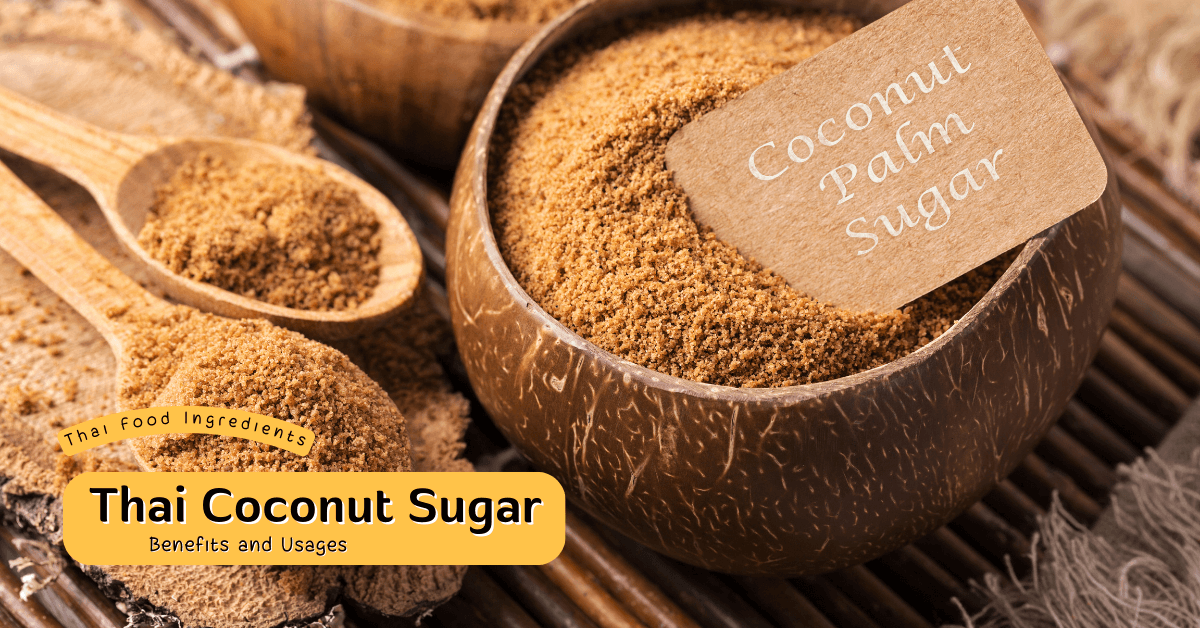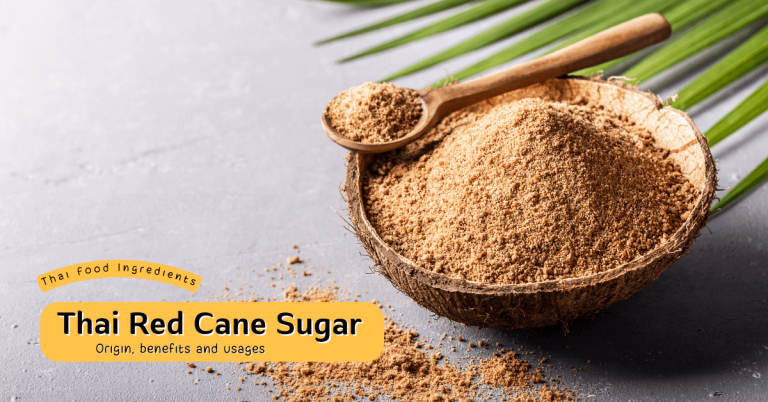Exploring the Versatility of Thai Coconut Sugar and Its Many Uses

Natural sweeteners, such as coconut sugar, offer a delightful way to enhance the flavors of your dishes while maintaining your health. For individuals passionate about cooking, the secret to delicious food lies in skillful seasoning. Sweetness is often achieved using sugar, but in recent times, health-conscious people are making more informed choices when it comes to ingredients and seasonings. As a result, many households are opting for coconut sugar as a healthier alternative to regular sugar.
What is Coconut Sugar, and Where Does it Come From?
Coconut sugar is a natural sweetener extracted from the sap of coconut flowers. It undergoes various processes, resulting in a sugar free from impurities and sand. It’s a 100% natural product that has been a staple in Thai kitchens for generations.
How is Coconut Sugar Produced?
The production of coconut sugar involves several meticulous steps:
- Selection of Coconut Blossoms: Careful selection of coconut blossoms is the first step.
- Tapping and Collecting Sap: Farmers typically begin tapping coconut blossoms early in the morning, using a knife to collect the sap. They collect the sap from over a hundred trees daily to ensure a sufficient supply for coconut sugar production.
- Boiling the Sap: The collected coconut sap is boiled until it thickens, and impurities and debris are removed.
- Reduction to Sugar: The sap is further reduced to sugar by using iron pots, creating a thick, sticky consistency that becomes coconut sugar.
- Quality Check: Authentic coconut sugar can be distinguished by its dark color and rich aroma. When heated, it turns back into a liquid easily. Coconut sugar that contains sand or impurities will have a lighter color and may not liquefy as readily when heated.
Health Benefits of Consuming Coconut Sugar
Consuming food seasoned with coconut sugar not only enhances the flavor but also offers numerous health benefits:
- Low Glycemic Index: Coconut sugar has a lower glycemic index compared to regular sugar, making it suitable for individuals looking to manage blood sugar levels.
- Rich in B Vitamins: It is a good source of B vitamins (B1, B2, B3, and B6), which can reduce the risk of infections, support energy metabolism, and maintain healthy skin, hair, and nails.
- Inulin: Inulin, a dietary fiber in coconut sugar, promotes strong intestinal health and can help prevent colon cancer.
- Copper: Copper in coconut sugar aids in the efficient absorption of iron and regulates bodily functions.
- Boosts Immune System: Coconut sugar contains nitrogen, which plays a crucial role in heart health and nerve and muscle function. It also helps maintain proper fluid balance in the body and overall body function.
Using coconut sugar as a sweetener in various dishes, both savory and sweet, can enhance the flavor without making the food excessively sweet.
Using Coconut Sugar in Cooking and Beverages
Coconut sugar is a versatile ingredient used in various culinary applications, from sweetening beverages like tea and coffee to making traditional Thai desserts. It enhances the sweetness and flavor of these dishes, making them delicious and healthy.
Differences Between Coconut Sugar and Other Sweeteners
Coconut sugar differs from other sweeteners, e.g. red cane sugar, in various ways:
- Coconut Sugar vs. Red Sugar Sand: Coconut sugar has a different texture compared to red sugar sand. Red sugar sand is made from sugarcane and appears as fine grains, while coconut sugar is denser and moist due to its moisture content.
- Coconut Sugar vs. Palm Sugar: Coconut sugar is available year-round, whereas palm sugar has a seasonal production.
In conclusion, health-conscious individuals should consider using coconut sugar as it is free from impurities and sand, providing numerous health benefits. Its unique flavor makes it a suitable choice for those who wish to enhance the taste of their dishes without excessive sweetness.

